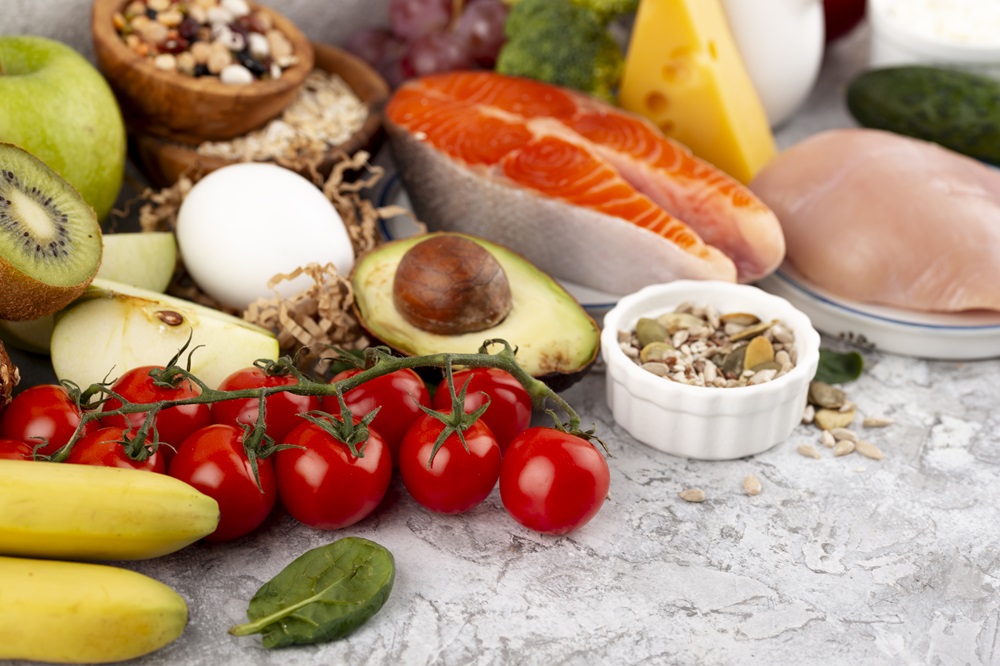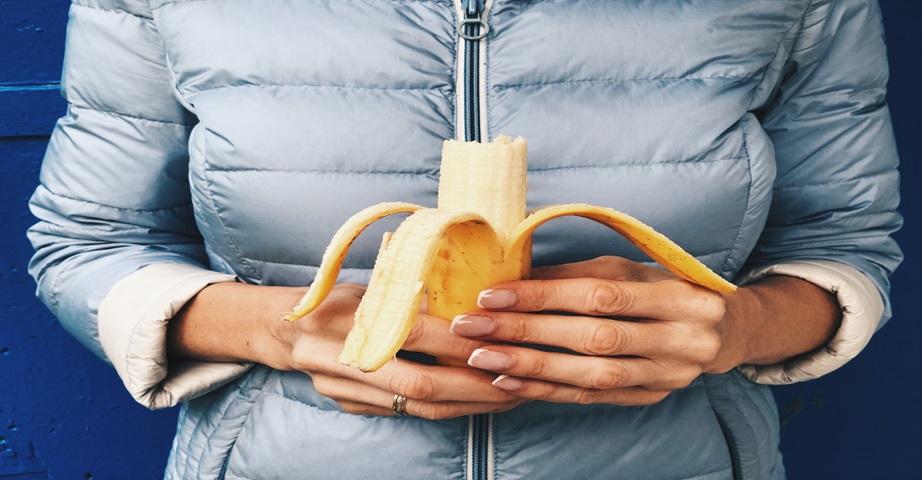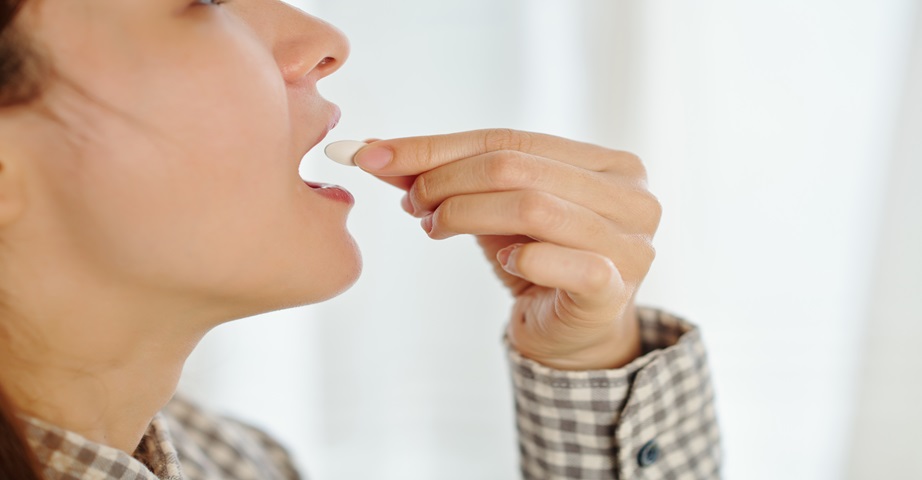What is potassium in? Know the properties, sources and demand

Potassium is a macroelement that is the most abundant intracellular cation in the human body. It is a compound necessary for the proper functioning of the body, which can support the nervous system, and can also affect the proper functioning of the muscles. It is an element commonly found in food, both in plant and animal products, which can be supplied to the body also in the form of dietary supplements. Potassium - where does it occur? What does potassium contain? What is the daily requirement for potassium? Potassium products - is it worth including them in the daily menu?
Summary
- What is potassium?
- Potassium - properties. Why is a diet rich in potassium important?
- Sources of potassium - what is potassium in?
- Potassium-rich products - table
- Dishes rich in potassium
- Potassium - demand. How much potassium per day?
- How and when to take potassium?
- Potassium - side effects and contraindications
What is potassium?
Potassium is a chemical element with the symbol K, which is one of the most important macroelement in the human body. It is an electrolyte, an intracellular cation, which in the body occurs in the form of ions and together with chlorine and sodium ions supports the maintenance of an appropriate concentration on both sides of the cell membrane.
The research carried out so far informs that in the human body there is about 140-150 g of valuable macroelement. It is also worth knowing that 98% of potassium is stored inside the cells, of which about 80% of the element can be found in skeletal muscles, and the rest of the compound occurs, among others, in the bones, erythrocytes or in the liver.
Potassium - properties. Why is a diet rich in potassium important?
Potassium is one of the most important minerals in the human body, which performs many important functions in the human system. Analyses of scientific results indicate that potassium is the electrolyte responsible for the proper functioning of the nervous and muscular systems, and at the same time it can have a significant impact on maintaining optimal water and electrolyte balance and acid-base balance.
As if that were not enough, the macroelement can support the maintenance of normal electrical voltage of cell membranes and can support the transmission of electrical impulses between cells, also participating in carbohydrate metabolism. Moreover, the element may have hypotensive potential, lowering blood pressure, among others by dilating blood vessels, and thus may reduce the risk of developing cardiovascular diseases.
The results of scientific research suggest that potassium can minimize the risk of kidney stones, also reducing the likelihood of developing type II diabetes. In addition, the electrolyte can participate in the activation of many body enzymes, while protecting the skeletal system and reducing the risk of osteoporosis.
Recommended dietary supplements with potassium
Sources of potassium - what is potassium in?
Potassium is the mineral commonly found in food. It is the element that can be found primarily in food products of plant origin, although potassium in food is also present in fish, meat or dairy products. Potassium - what is it in? What foods is potassium in?
What has a lot of potassium? Vegetables as a source of the element
Vegetables are considered to be a particularly valuable source of potassium, and the most commonly included product in the menu, which provides the desired microcomponent to the body, are potatoes. In addition, potassium can be found in vegetables such as:
- spinach,
- arugula,
- pumpkin,
- carrot,
- broccoli,
- kale,
- sweet potatoes,
- tomatoes and tomato juice,
- zucchini.
Where is the potassium? Fruits rich in potassium
Potassium-rich products are also considered fruits, such as:
- bananas,
- passion fruit,
- kiwi,
- black currant,
- apricots,
- avocado.
What has the most potassium? Dried fruits are considered to be a particularly valuable source of the electrolyte. The analyses carried out so far indicate that significant amounts of the element can be found in prunes, as well as in dried apricots and dates. In addition, the treasury of the nutrient is also dried figs or raisins.
What other foods is potassium in?
Wondering what contains a lot of potassium, it is worth mentioning not only vegetables and fruits, but also legumes, which can include, among others, soy, chickpeas or beans. In addition, nuts and seeds are also considered a good source of the valuable mineral, including pistachio nuts, coconut shavings, sunflower seeds or pumpkin seeds.
Slightly smaller amounts of potassium can also be found in whole grain cereal products, including buckwheat, as well as in animal foods. The results indicate that the electrolyte is present in fish and meat, as well as in milk, yoghurts and other dairy products.
Potassium-rich products - table
"Potassium - in which products can be found?", "Potassium - where is the most element?" - these are often questions among consumers who want to increase the supply of the valuable mineral. Although it would seem that the best source of the electrolyte are potatoes and bananas, potassium can also be found in many other commonly available foods.
| Food product | Potassium content [mg/100 g] |
Soy |
2132 |
Dried apricots |
1666 |
Cocoa |
1532 |
Beans |
1200 |
Pistachios |
1090 |
Lentils |
874 |
Pumpkin seeds |
809 |
Almonds |
778 |
Dark chocolate |
714 |
Fresh spinach |
558 |
Potatoes |
443 |
Bananas |
395 |
Milk 2% fat |
160 |

Dishes rich in potassium
In order to provide the body with the desired amounts of the valuable microcomponent, it is worth taking into account dishes rich in potassium in the daily menu, which not only constitute the valuable source of precious compound, but also provide the human body with many others, essential for proper functioning, nutrients.
- Chocolate oatmeal
- Pour milk into a small pot, add oatmeal and boil, stirring all the time.
- Add chocolate and cocoa and mix all the ingredients.
- Put the prepared oatmeal in a bowl, add the sliced banana and finely chopped walnuts and mix all the ingredients again.
- Potassium cocktail
- Spinach wash and put in a blender cup.
- Add peeled and finely chopped banana and a handful of raisins and cocoa.
- Pour the whole with milk and blend to obtain a solid consistency.
- Baked cod with potatoes in prune sauce
- Wash and dry the fish, then spread with oil, season with your favourite spices, sprinkle with lemon juice and wrap in aluminium foil. Bake in an oven preheated to 200 degrees Celsius for about 30 minutes.
- Peel the potatoes, wash and cut, then cook.
- Wash broccoli, divide into smaller roses, put in a steaming pot and also cook.
- When baking fish and cooking vegetables, prepare prune sauce - peel the onion and garlic and cut them finely, then finely cut the dried fruits. Heat a tablespoon of rapeseed oil in a pan, fry the onion and garlic, then add the prunes and fry for about 2 minutes. Pour the whole with water and season at your discretion. Cook for about 10 minutes until the sauce thickens.
- Pour the fish and potatoes on a plate with the prepared sauce. Serve with boiled broccoli.
Ingredients: 50 g of oatmeal, 150 ml of milk 2% fat, 3 cubes of dark chocolate, a handful of walnuts, a pinch of cocoa, 1 banana.
Preparation:
Ingredients: 1 banana, a handful of fresh spinach, 100 ml of milk 2% fat, a teaspoon of cocoa, a handful of raisins.
Preparation:
Ingredients: 150 g of skinless cod fillet, lemon juice, favourite spices, 100 g of potatoes, 60 g of prunes, 1 onion, 2 tablespoons of rapeseed oil, 1 clove of garlic, water, 100 g of broccoli.
Preparation:
Potassium - demand. How much potassium per day?
The human body needs significant amounts of potassium to function properly, and the high demand for the microcomponent suggests that the element plays many important roles in the human body, being a widely used compound in the body.
The analysis carried out so far indicates that the demand for potassium increases with age. According to the Nutrition Standards for the Polish population developed by the Institute of Food and Nutrition, among adults, both among women and men, the daily supply of potassium should be 3500 mg. An increased demand of 4,000 mg can be observed among lactating women.
Infants up to 1 year of age should consume 400-700 mg of potassium every day, while children up to 9 years of age should provide the body with a daily menu of 800-1800 mg of the element per day. Adolescents up to 15 years of age should include in the menu 2400-3000 mg of the macroelement, while both girls and boys aged 16-18 years should consume 3500 mg of potassium every day.
Experts from the World Health Organisation (WHO) and the European Authority for. Food Safety (EFSA) indicates that adequate supply of potassium consists in providing the body with such amounts of microcomponent that will contribute to minimizing the risk of developing diseases associated with electrolyte deficiency, among which can be mentioned, among others, stroke or ischaemic heart disease. It is also worth remembering to adjust the appropriate supply of the element to the system to the individual needs of the body, taking into account not only age and gender, but also physical activity practiced on a daily basis, the climate or type of diet used.
Are dietary supplements good sources of potassium?
The best source of potassium is considered to be food products that are a valuable treasury of the element, which should be taken into account in the daily menu, composing with their help meals and dishes rich in valuable nutrients. Among people who are distinguished by increased demand for the macroelement, among others, among athletes regularly did in intense physical efforts, as well as among consumers who have difficulties with the appropriate supply of the ingredient along with the daily menu, dietary supplements with potassium, considered a concentrated source of the desired substance, can also be a valuable support.
On the market can be found many different preparations containing potassium, which can be a good source of the ingredient. When choosing the right dietary supplement, you should pay attention to several important issues, including the form of occurrence of the element in the product. Potassium chloride and potassium gluconate are considered the most absorbable forms of the ingredient, although preparations containing potassium citrate, potassium aspartate or potassium bicarbonate are also available for sale. In addition, it is worth reaching for dietary supplements containing the largest amounts of the microcomponent, which are prolonged-release preparations.
When considering taking dietary supplements with potassium, it is also worth focusing on other ingredients present in the preparation. Potassium often occurs with magnesium, which is due to the fact that the elements can show synergistic effects, complementing each other, therefore, the use of preparations containing potassium and magnesium at the same time may prove to be a beneficial solution.
How and when to take potassium?
Potassium is the important mineral component, the proper supply of which is necessary for the proper work of the whole human body. The normal concentration of potassium in the blood is 3.5-5.0 mmol/l. Hypokalaemia, or potassium deficiency, can be found when the electrolyte level reduce below 3.5 mmol/l, while hyperkalaemia, or excess potassium, can be observed then, when the concentration of the component in the body exceeds 5.0 mmol/l.
Since both excess and potassium deficiency can negatively affect the functioning of the human body, it is worth ensuring an adequate supply of the element to the system, including in the menu products considered as valuable sources of the component, and if necessary, reaching for dietary supplements containing the electrolyte. However, it is worth remembering that potassium preparations should always be used in accordance with the doctor's recommendation or manufacturer's guidelines, because incorrect intake of potassium supplements may cause undesirable symptoms.
Preparations containing potassium should be taken in the morning with a meal or immediately after the end of consumption, which may have a beneficial effect on the absorption of the valuable component in the body. It may also be helpful to take potassium along with products considered to be sources of magnesium or vitamin C - compounds that can positively affect the bioavailability of the substance.

Potassium - side effects and contraindications
Potassium is the element necessary for the proper functioning of the human body, which can sometimes contribute to the occurrence of side effects in the human body. The most common undesirable symptoms, which include drowsiness and apathy, muscle spasms and weakness, dizziness, confusion or abnormal heart rhythm and balance, can be observed among adults taking excessive amounts of dietary supplements containing the compound, although negative symptoms may also be the result of an interaction between potassium and medications taken, or may be associated with some diseases.
It is also worth remembering that people struggling with kidney disease or consumers suffering from cardiovascular diseases should not take dietary supplements containing potassium without consulting a doctor. Moreover, caution when taking potassium should be kept by people dehydrated and struggling with inflammation of the stomach and intestines.

